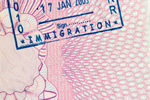Indoor air pollution in China a factor in acceptance of top tier expat relocations

Indoor air pollution in China a factor in acceptance of top tier expat relocations
Clean indoor air is no longer a luxury for expat professionals, as top talent is now refusing postings to the country’s major, most polluted cities. Upscale hotels are already boasting about their state of the art indoor clean air technology, but Shanghai offices and other work environments are taking longer to catch up. It’s now perceived wisdom that indoor air can be far worse than what’s outdoors, threatening expats as well as locals with a doubly whammy of health risks due to poor building materials, adhesives, poor insulation and volatile organic compounds.
The sale of air purifiers is now soaring due to demand from increasing numbers of building managers and employers, and relocation companies are now offering indoor air quality inspections and assessments to top tier expat professionals considering a stint in one of China’s mega-cities. Even Starbucks has joined in the panic with its monster new Shanghai Reserve Roastery equipped with high-standard air quality monitoring devices.
Shanghai’s independent schools are now cleaning up their indoor air act following an initial study and installation in just two, which immediately resulted in the rest having to follow or lose pupils. World Health Organisation estimates suggest indoor and outdoor air pollution is responsible for over six million deaths annually, half of which occur in China and India. Working in offices with top-spec filtration systems can increase life expectancy by around six days per year worked, although the less obvious effects of chronic air pollution have yet to be quantified.
However, a recent study suggests those working in ‘green’ buildings show higher cognitive functions, get better sleep and have less health problems, all of which give better value for the high salaries paid to the brightest and best. Awareness of these facts amongst the number of highly-desirable top tier expat professionals being offered jobs in China might well force the pace of change to accelerate in order to persuade more to relocate.
Related Stories:
- Is Kuwaitization the unintended result of the oil price crash? - July 20, 2020
- Expats in Malaysia still banned from overseas travel - July 17, 2020
- HSBC Asia to cut back on internal expat relocations - July 16, 2020
- Tips on integrating for newly-arrived expats - July 15, 2020
Latest News:
- Tips on a trouble-free relocation as an expat overseas - July 20, 2020
- Expats find peace in the covid-19 refuge of Dahab town - July 20, 2020
- Is Kuwaitization the unintended result of the oil price crash? - July 20, 2020
- Expats unhappy abut changes to Korean points-based visa system - July 17, 2020
- Chiang Mai and Bangkok no longer bargain locations for expats - July 17, 2020
- Expats in Malaysia still banned from overseas travel - July 17, 2020
- Vietnam welcomes expats to its safe, affordable lifestyle - July 16, 2020
- Asian tiger economies reach out to expats in Hong Kong - July 16, 2020
- HSBC Asia to cut back on internal expat relocations - July 16, 2020
- Tips on integrating for newly-arrived expats - July 15, 2020


